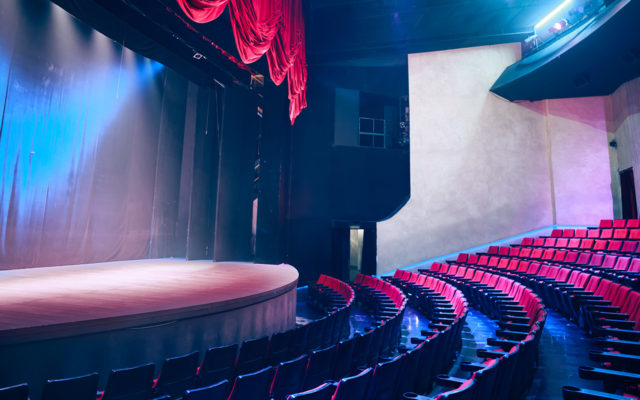The Unique Risk Profile of Musical Theatre
Musical theatre productions face significantly more complex risks than traditional dramatic performances. The addition of live music introduces multiple layers of potential liability and financial exposure that standard theatre insurance may not adequately cover.
Key risk factors specific to musical theatre include:
- Expensive musical instruments and sound equipment
- Larger cast and crew requirements
- Complex staging with moving sets and elevated platforms
- Increased noise levels affecting neighboring properties
- Higher production costs and potential financial losses
- Specialized technical requirements for sound and lighting
Essential Insurance Coverage for Musical Productions
Musical Instruments and Equipment Insurance
Musical theatre productions often require significant investment in instruments, sound systems, and recording equipment. This specialized coverage protects against theft, damage, or loss of musical equipment, whether owned, hired, or borrowed. Coverage should extend to instruments used by both professional musicians and amateur performers.
Enhanced Public Liability Insurance
The complexity of musical theatre productions increases public liability risks. Enhanced coverage should account for larger audiences, more complex staging, and the potential for accidents involving both performers and audience members. This includes protection against claims arising from noise complaints or hearing damage.
Performers' Personal Accident Insurance
Musical theatre often involves more physical demands on performers, including dancing, singing, and complex choreography. Personal accident insurance provides crucial protection for cast members who may be injured during rehearsals or performances, covering medical expenses and loss of income.
Production Liability Insurance
This specialized coverage protects against claims arising from the production itself, including copyright infringement, defamation, or breach of contract. For musical theatre, this is particularly important given the complex licensing requirements for musical works and potential disputes over performance rights.
Protecting Musical Equipment and Technology
Instrument Valuation and Coverage
Musical instruments can range from relatively inexpensive to extremely valuable antiques or professional-grade equipment. Proper valuation is essential to ensure adequate coverage. Consider separate coverage for:
- Owned instruments and equipment
- Hired or rented equipment
- Personal instruments brought by performers
- Sound and recording equipment
- Sheet music and scores
Technology and Sound System Protection
Modern musical theatre relies heavily on sophisticated sound systems, wireless microphones, and digital equipment. Coverage should include protection against technical failure, power surges, and accidental damage during setup or performance.
Venue-Specific Considerations
Acoustic and Noise Liability
Musical productions generate significantly more noise than traditional theatre, potentially affecting neighboring properties or violating local noise ordinances. Specialized coverage can protect against claims related to noise complaints or hearing damage.
Structural Considerations
Live music often requires additional structural support for sound equipment, elevated platforms for orchestras, and specialized acoustic treatments. Insurance should cover potential damage to venues from these modifications.
Multi-Venue Productions
Touring musical productions face additional challenges when moving between venues. Coverage should extend to transportation of equipment, setup and breakdown activities, and varying venue requirements.
Cast and Crew Protection
Key Person Insurance
Musical theatre productions often depend heavily on specific performers, particularly lead singers or musicians. Key person insurance can protect against financial losses if a crucial cast member becomes unable to perform due to illness or injury.
Vocal and Physical Health Coverage
Singers face unique health risks, including vocal strain and respiratory issues. Specialized coverage can provide protection for medical treatment and income replacement for performers whose careers depend on their voice or physical abilities.
Musicians' Professional Indemnity
Professional musicians involved in productions may need separate professional indemnity coverage, particularly if they're providing arrangements, compositions, or musical direction services.
Financial Protection and Business Interruption
Production Cancellation Insurance
Musical theatre productions involve substantial upfront costs for rights, rehearsals, marketing, and equipment. Cancellation insurance protects against financial losses if performances must be cancelled due to unforeseen circumstances such as:
- Key performer illness or injury
- Venue unavailability
- Equipment failure or damage
- Extreme weather conditions
- Public health emergencies
Box Office and Revenue Protection
This coverage protects against lost ticket revenue and additional expenses incurred when productions are delayed or cancelled. It can also cover the costs of rescheduling performances and notifying ticket holders.
Licensing and Legal Considerations
Music Licensing Compliance
Musical theatre productions must navigate complex licensing requirements for musical works, including performance rights, mechanical rights, and synchronization rights. Insurance should provide protection against claims of copyright infringement or licensing violations.
Contract and Agreement Protection
The complex nature of musical productions involves multiple contracts with performers, musicians, venues, and equipment suppliers. Legal expenses insurance can provide crucial protection against contract disputes and litigation costs.
Risk Management Best Practices
Pre-Production Planning
Effective risk management begins in the planning stages:
- Conduct thorough venue assessments
- Implement proper equipment handling procedures
- Establish clear safety protocols for cast and crew
- Ensure all licensing requirements are met
- Develop emergency response procedures
Ongoing Safety Measures
Throughout the production process, maintain focus on:
- Regular equipment maintenance and testing
- Proper storage and transportation of instruments
- Health and safety training for all participants
- Documentation of all incidents and near-misses
- Regular review and update of insurance coverage
Choosing the Right Insurance Partner
Musical theatre insurance requires specialized knowledge and experience. When selecting an insurance provider, consider:
- Experience with entertainment and performing arts coverage
- Understanding of musical theatre-specific risks
- Flexibility to customize coverage for unique productions
- Claims handling experience in the entertainment sector
- Competitive pricing for comprehensive coverage
- Access to risk management resources and expertise
Cost Management Strategies
While comprehensive coverage is essential, there are ways to manage insurance costs effectively:
- Bundle Coverage: Combining multiple types of coverage can often reduce overall premiums
- Risk Assessment: Implementing strong risk management practices can lead to lower premiums
- Deductible Management: Higher deductibles can reduce premium costs for groups with good risk management
- Annual vs. Production-Specific: Regular producers may benefit from annual policies rather than individual production coverage
- Group Policies: Theatre organizations may offer group insurance programs for member productions


 0330 127 2333
0330 127 2333
